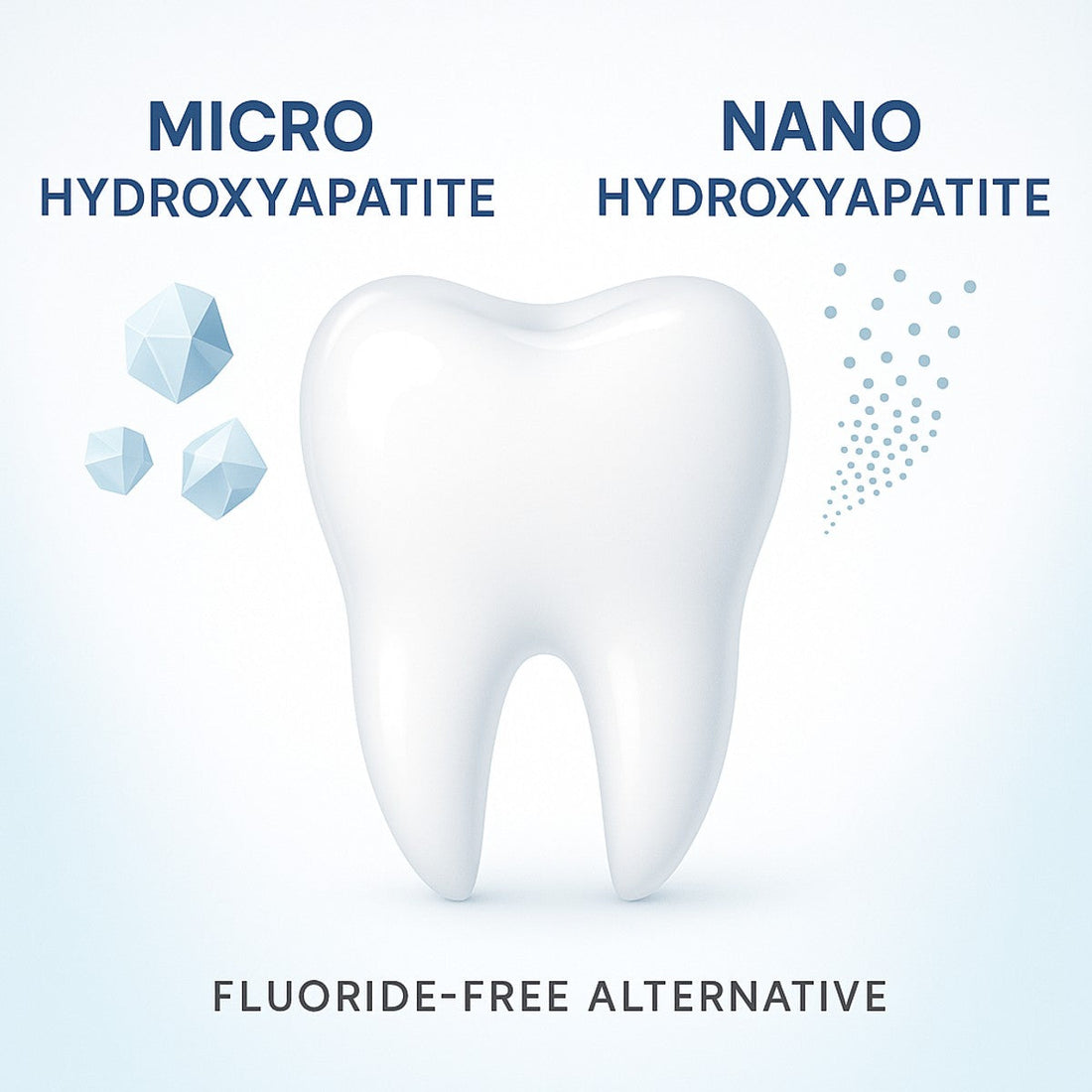Hydroxyapatite (HAp) is the biomimetic form of the primary mineral that makes up tooth enamel. Enamel is composed of 97% hydroxyapatite and dentin of 70%, which makes teeth strong, shiny, and healthy. Without sufficient hydroxyapatite, teeth weaken and become sensitive.
👉 According to The Open Dentistry Journal, hydroxyapatite reduces plaque, minimizes gum bleeding, and inhibits bacterial growth in the oral cavity.
A Safer Alternative to Fluoride
Clinical studies show that hydroxyapatite is as effective as fluoride in many cases—and even superior in some (PubMed). For this reason, hydroxyapatite has been used in Japan as a substitute for fluoride for more than 40 years.
While excessive fluoride intake may cause toxic effects, hydroxyapatite is biocompatible, non-toxic, and preserves the oral microbiome.
How Does It Work on Teeth?
The high concentration of hydroxyapatite in enamel is the key reason behind its remarkable strength. Hydroxyapatite restores lost minerals in enamel, fills in micro-cracks, and seals the gaps where bacteria could otherwise adhere—thereby reducing the risk of cavities.
-
Whitening effect: Makes teeth look brighter.
-
Desensitizing effect: Repairs enamel to reduce sensitivity.
-
Anti-plaque effect: Reduces plaque buildup and gum inflammation.
👉 Research published in Frontiers in Physiology shows that hydroxyapatite provides resistance against acidic pH and protects enamel from erosion.
Micro vs. Nano Hydroxyapatite
Nano Hydroxyapatite (nano-HAp): Features smaller particle size, allowing it to penetrate microscopic cracks in enamel. For this reason, some manufacturers claim nano-HAp delivers “deeper” effects. However, nanoparticles can potentially pass through enamel microcracks into capillaries or organ tissues, and their long-term health effects remain uncertain (Nature Nanotechnology).
Micro Hydroxyapatite (micro-HAp): With its larger particle size, it remineralizes the enamel surface in a way that closely mimics the natural structure. Due to safety concerns, the COSMOS Organic Standards prohibit the use of nano-hydroxyapatite, but micro-HAp is considered safe.
👉 Journal of Clinical Medicine confirms that micro-HAp demonstrates strong effects in preventing cavities, reducing sensitivity, and repairing enamel.
Why We Choose Micro Hydroxyapatite?
At Turtlee Organics, we use micro-hydroxyapatite in our products to provide fluoride-free yet powerful remineralization. There are two key reasons behind this choice:
-
Scientific evidence clearly shows that micro-HAp is effective in protecting and remineralizing enamel.
-
Compliance with organic standards: Nano forms are prohibited, while micro forms are both certification-compliant and more predictable in terms of long-term safety.
Because nano particles are small enough to pass through enamel microcracks and potentially reach the bloodstream or organs, their long-term effects on human health remain uncertain. For this reason, we choose micro-HAp, which fully aligns with the safety standards of the COSMOS Organic Certification

